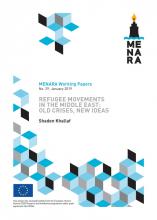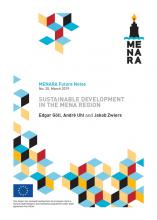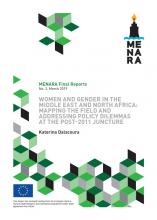
Depuis sa création en 1985 par l’association «Amis du Cinéma de Tétouan» (ACT), le Festival de Cinéma Méditerranéen de Tétouan n’a eu de cesse de promouvoir les cinématographies de la mare nostrum et de porter haut les valeurs d’une cinéphilie exigeante et diverse. Connu pour son engagement et sa contribution à la diffusion du cinéma méditerranéen, le festival est d’abord celui d’une ville, Tétouan, terreau des arts qui, de la musique aux arts plastiques, a abrité et continue d’abriter des mouvements artistiques qui connaissent un rayonnement bien au-delà de la région. C’est donc dans cette ville au climat culturel favorable que, tout naturellement, une poignée d’enseignants cinéphiles imagine ce projet, alors même que les ciné-clubs, au sein desquels ils ont été formés, disparaissaient au Maroc.
Rappelons que le festival a accueilli les plus grandes figures du cinéma méditerranéen dont on peut citer à titre d’exemple :
Youssef Chahine (Égypte), Agnès Varda (France), Mohamed Abderrahmane Tazi (Maroc), Lucas Belvaux (Belgique), Faouzi Bensaïdi (Maroc), Gianni Amelio (Italie), Houda Soltane (Égypte), Giuseppe Tornatore (Italie), Nabila Oubaid (Égypte), Jane Birkin (France), Farid Chawki (Égypte), Ismael Ferroukhi (Maroc), Jean-Claude Brisseau (France), Mohamed Miftah (Maroc), Nadia Lotfi (Égypte), Salah Abou Saïf (Égypte), Daoud Oulad Syad (Maroc), Olivier Assayas (France), Boussy (Égypte), André Téchiné (France), Ahmed El Fichaoui (Égypte), Amal Ayouch (Maroc), Georges Chamoune (Liban), Mai Masri (Liban), Katia Gerou (Grèce), Brigitte Rouan (France), Hamid Bennani (Maroc), Kyriaskos Katzourakis (Grèce), Antonio Jiminez Rico (Espagne), Tayfun Pirsmuglo (Turquie), Rachid El Ouali (Maroc), Azzedine Meddour (Algérie), Roberto Midi (Italie), Hind Sabri (Tunisie), Abdelatif Banammar (Tunisie), Luis Berlanga (Espagne), Anne Brochet (France), Michel Khalifi (Palestine), Mouna Wassef (Syrie), Reda Behi (Tunisie), Branko Schmidt (Croatie)…Claudia Cardinale ( Italie ) Imanol Arias’(Espagne) Jillali Ferhati ( Maroc) , Mohamed Chrif Tribak ( Maroc) Farida Belyasid ( Maroc) Ahmed Hilmi (Egypte)
Par rapport à la crise sanitaire et dans l’attente que les choses reviennent à la normale, la 26 édition du 4 au 10 juin est organisée en mode virtuel https://festivaltetouan.org/presentation-2021/
Festival de Cinéma Méditerranéen de Tétouan https://festivaltetouan.org/
Compétitions https://festivaltetouan.org/competitions-2021/







